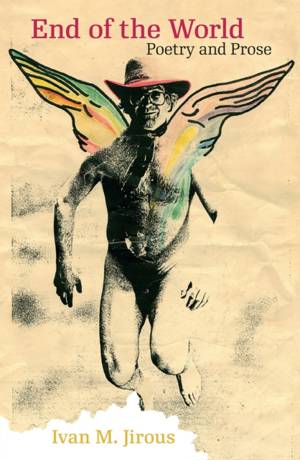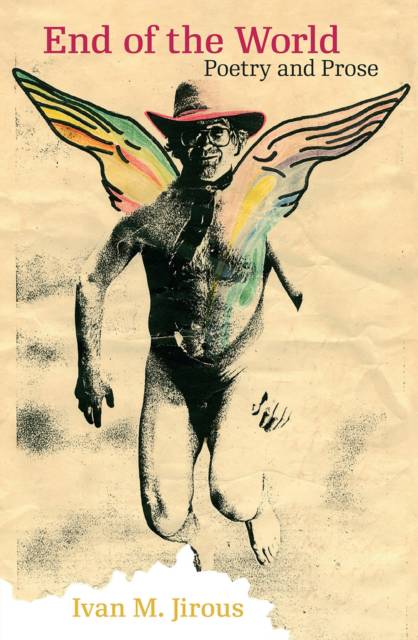
Je cadeautjes zeker op tijd in huis hebben voor de feestdagen? Kom langs in onze winkels en vind het perfecte geschenk!
- Afhalen na 1 uur in een winkel met voorraad
- Gratis thuislevering in België vanaf € 30
- Ruim aanbod met 7 miljoen producten
Je cadeautjes zeker op tijd in huis hebben voor de feestdagen? Kom langs in onze winkels en vind het perfecte geschenk!
- Afhalen na 1 uur in een winkel met voorraad
- Gratis thuislevering in België vanaf € 30
- Ruim aanbod met 7 miljoen producten
Zoeken
€ 34,45
+ 68 punten
Omschrijving
Sometimes called the Czech Bukowski, and more widely known by the epithet "Magor" (which translates roughly to "fool" or "madman"), Ivan Jirous was one of the most significant figures in the Czechoslovak cultural underground of the 1960s through the '80s. Although trained as an art historian and famed for his poetry, Jirous was convinced that it was actually rock and roll music that held the greatest potential to enact change under the repressive regime of communist Czechoslovakia. He designated himself as the artistic director of the dissident rock band The Plastic People of the Universe, legendary for psychedelic music that was heavily influenced by nonconformist Western acts like Frank Zappa and The Velvet Underground. Alongside other figures from the musical underground, Jirous was arrested in 1976--the second of five prison sentences he would serve for his dissent--which helped bring about the landmark civil rights initiative known as Charter 77. In the wake of 1989's Velvet Revolution, Váсlav Havel--the first president of the Czech Republic--was to say that Jirous and his unwavering commitment to liberation played "no small part" in casting off the yoke of Soviet oppression. End of the World is the first major collection in English of the works of this legendary Czech "madman." Although nicknamed for his aggressive and rebellious behavior, Jirous's writing reveal a refined, sophisticated, and even tender sensibility. Translated in part by Paul Wilson, an original member of the Plastic People, the book gathers his poems and letters from prison, as well as his book-length prose work, The True Story of the Plastic People, alongside critical essays on Jirous's life and work. End of the World is an ideal introduction to the raucous writer who playwright Tom Stoppard referred to as one of the most interesting personalities in modern Czech history.
Specificaties
Betrokkenen
- Auteur(s):
- Vertaler(s):
- Uitgeverij:
Inhoud
- Aantal bladzijden:
- 400
- Taal:
- Engels
- Reeks:
Eigenschappen
- Productcode (EAN):
- 9788024645278
- Verschijningsdatum:
- 6/03/2026
- Uitvoering:
- Paperback
- Formaat:
- Trade paperback (VS)
- Afmetingen:
- 152 mm x 203 mm
- Gewicht:
- 453 g

Alleen bij Standaard Boekhandel
+ 68 punten op je klantenkaart van Standaard Boekhandel
Beoordelingen
We publiceren alleen reviews die voldoen aan de voorwaarden voor reviews. Bekijk onze voorwaarden voor reviews.









